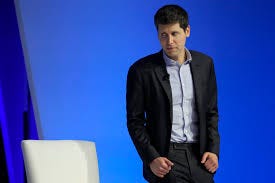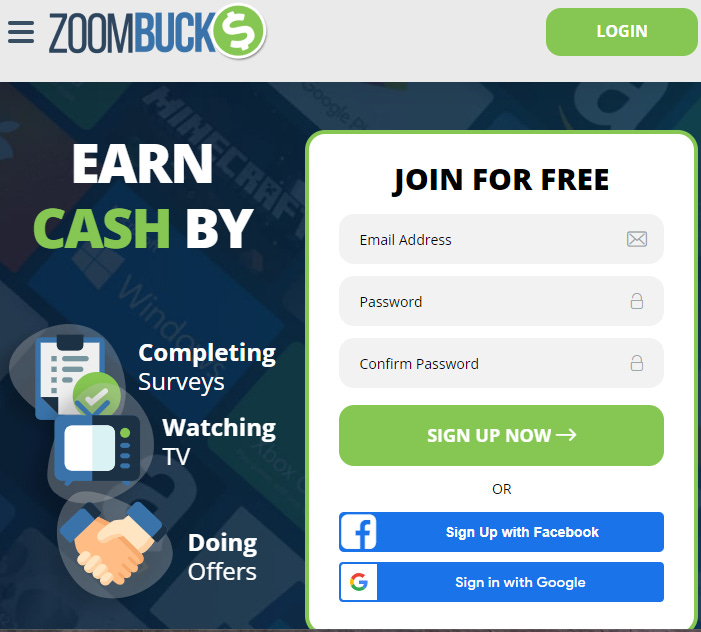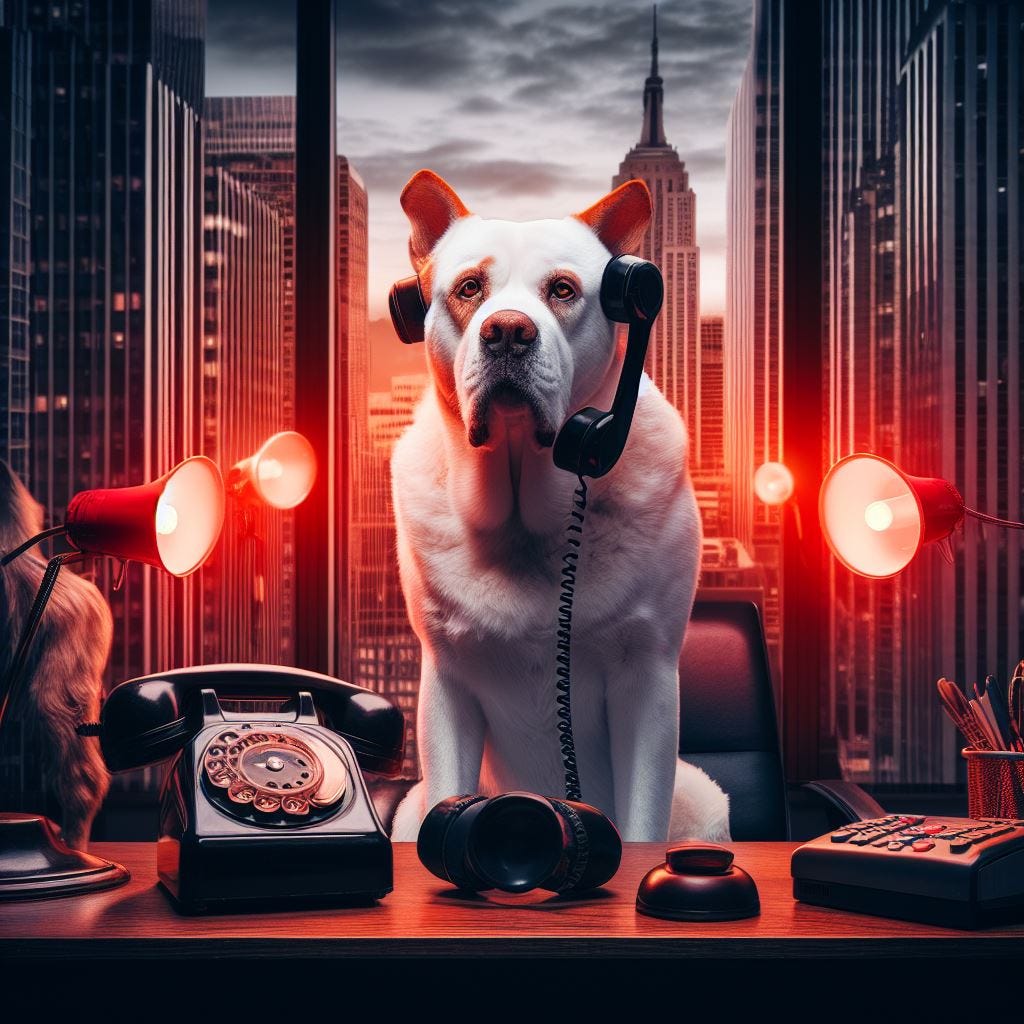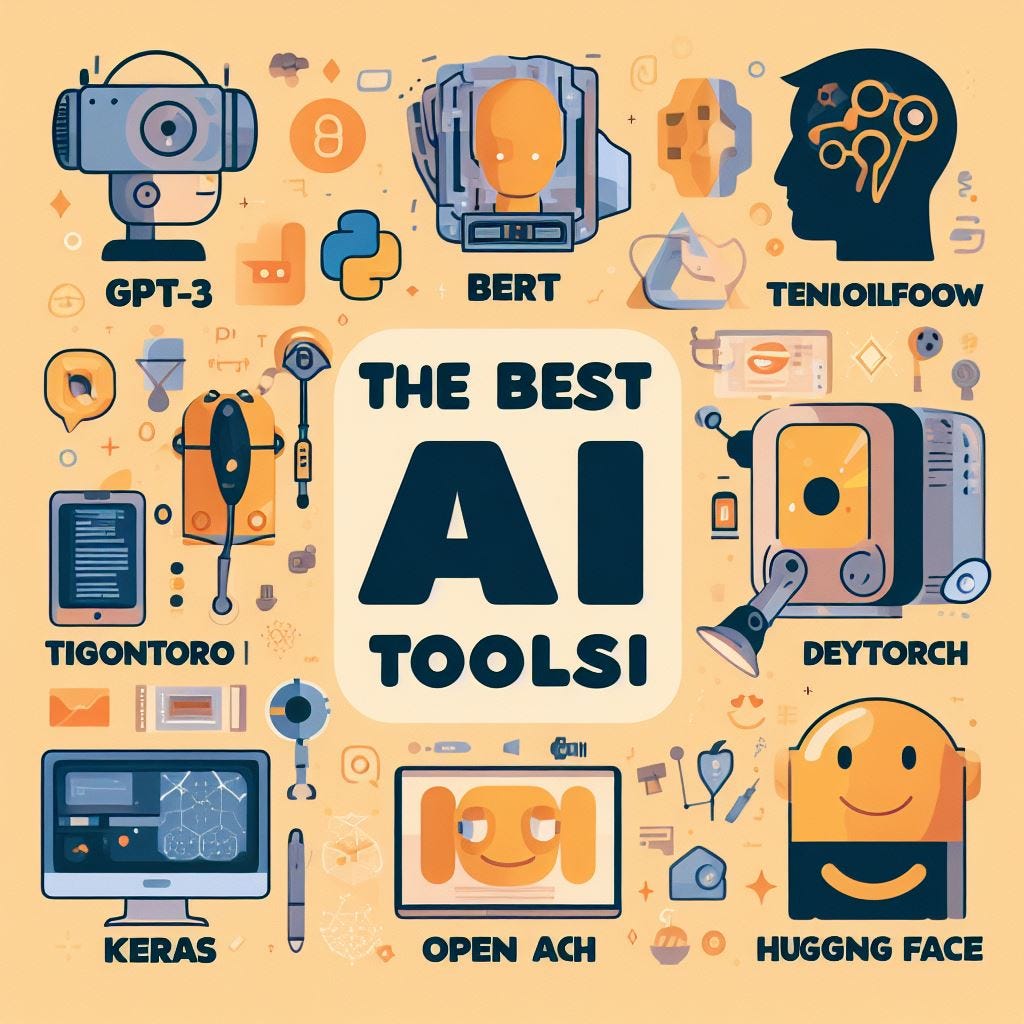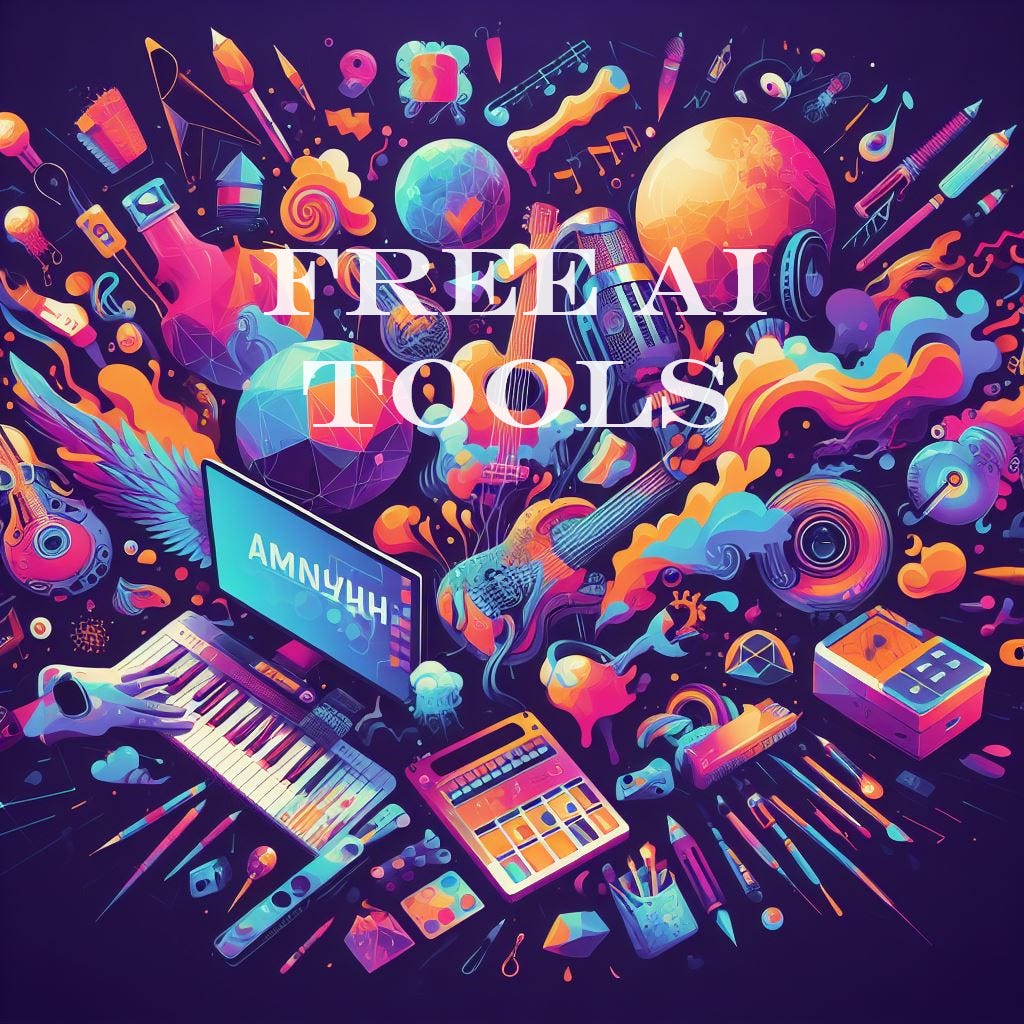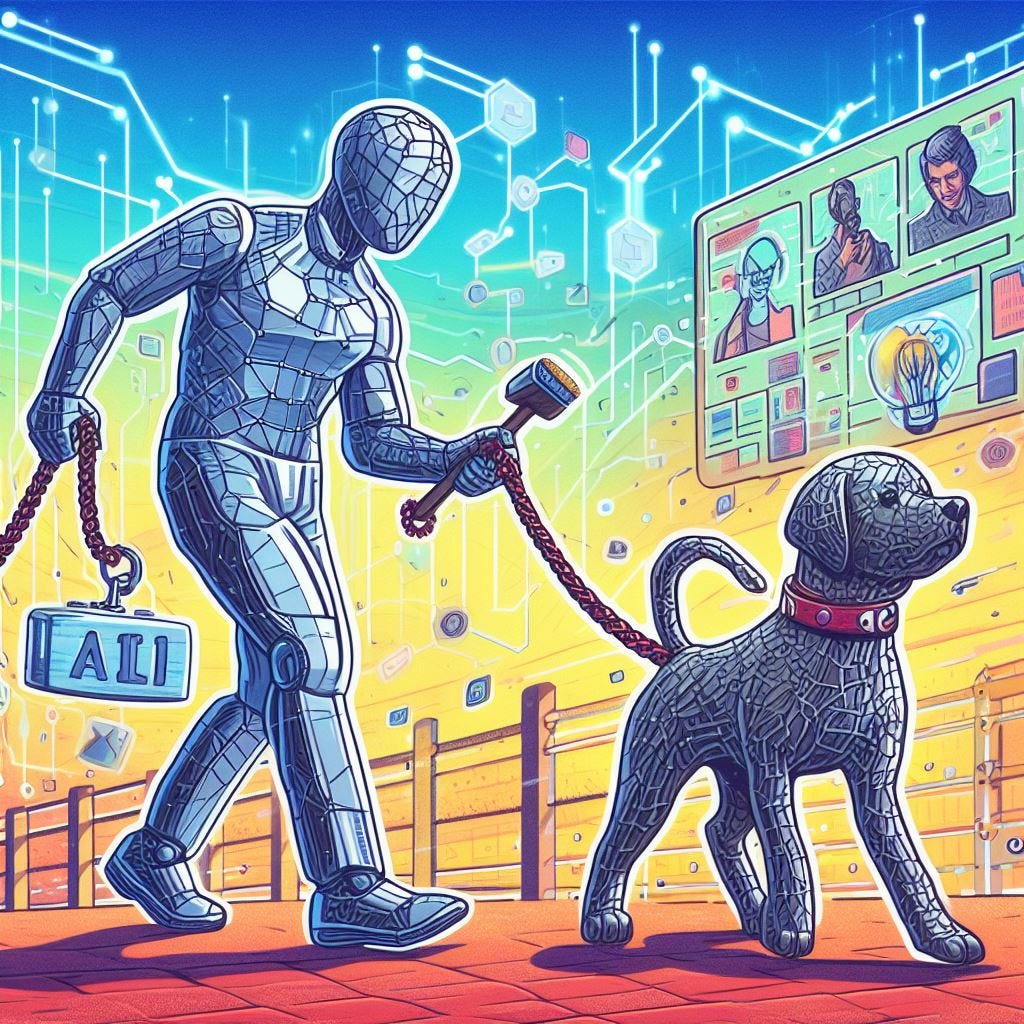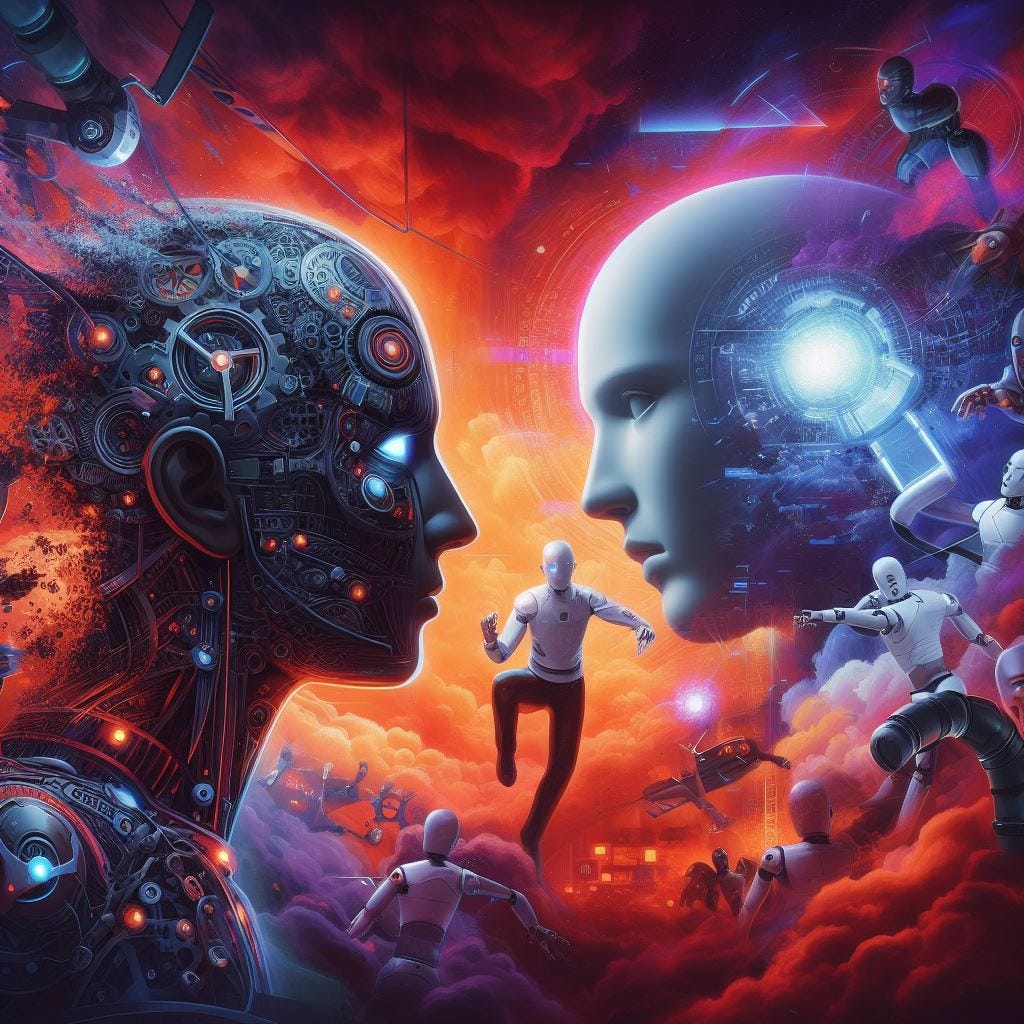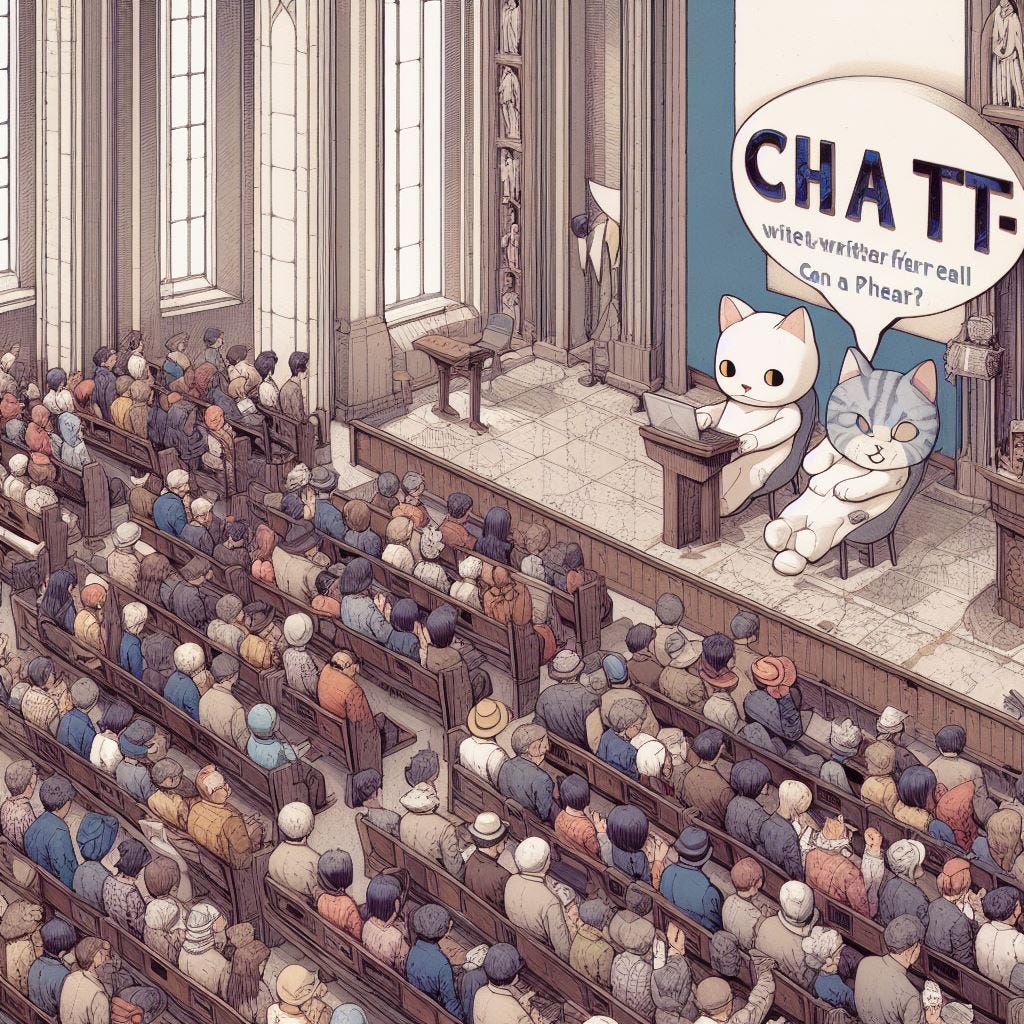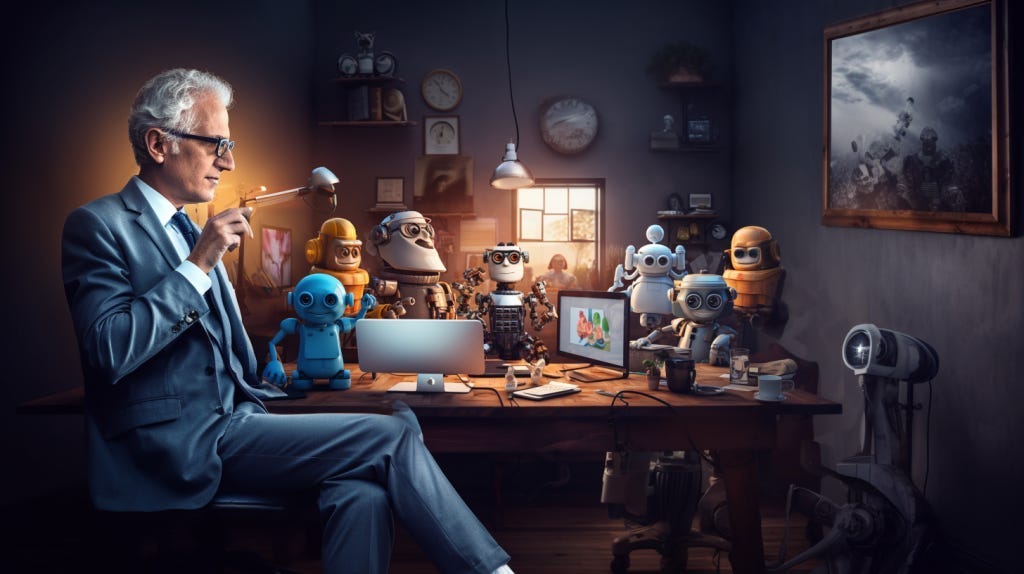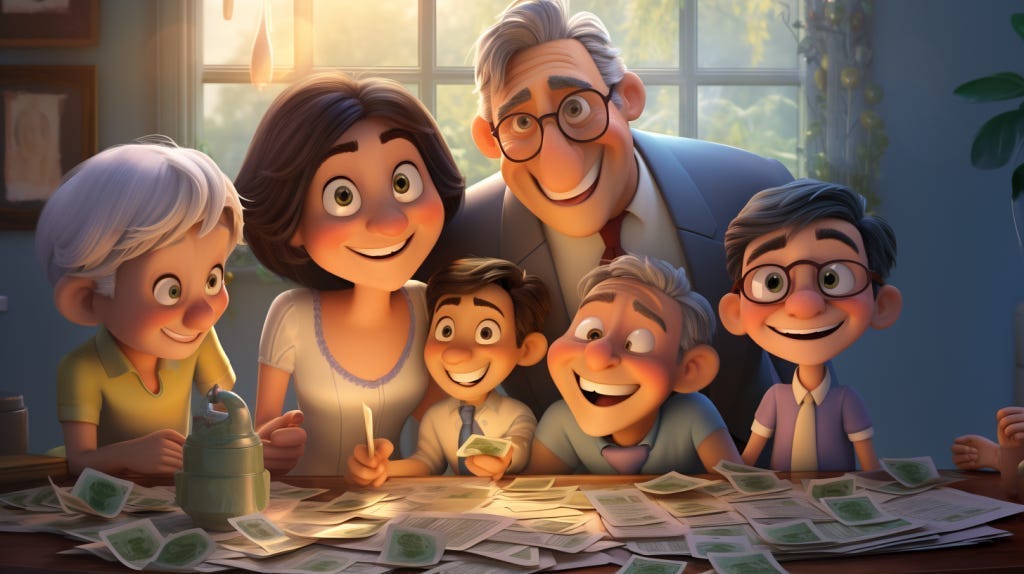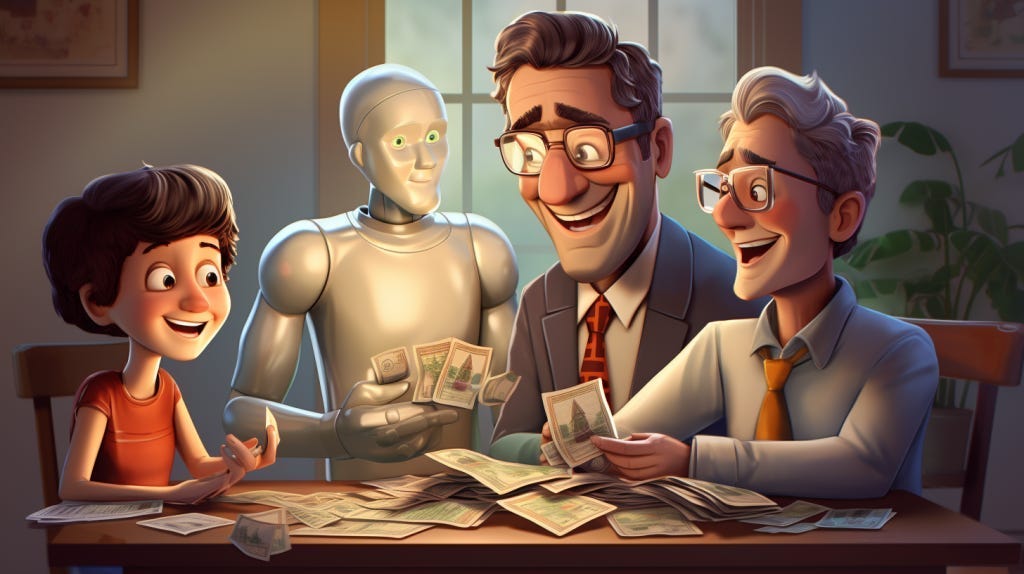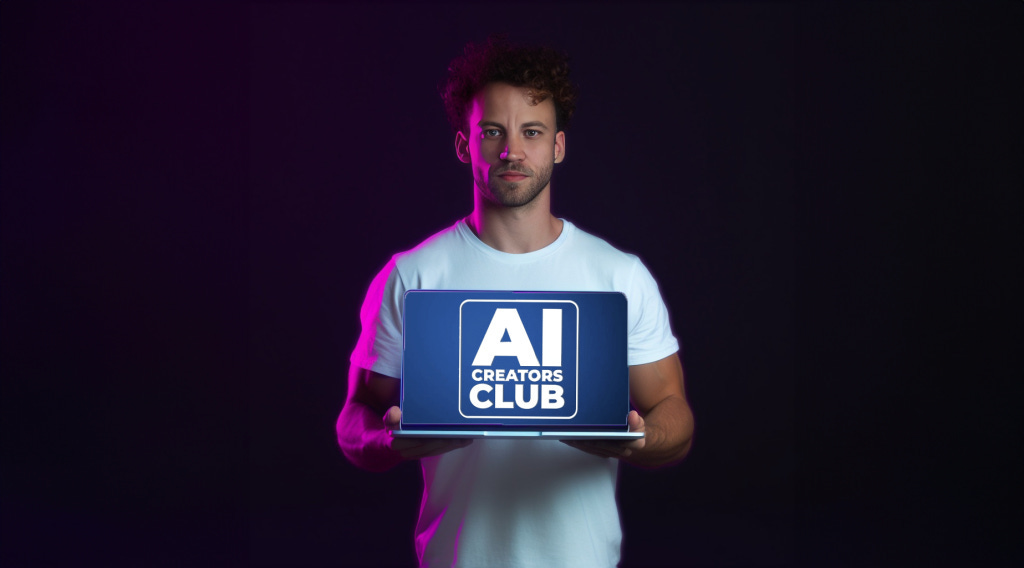OpenAI CEO Fired Then Reinstated After Staff Revolt and Microsoft Job Offer
OpenAI CEO Fired Then Reinstated After Staff Revolt and Microsoft Job Offer Behind the Scenes: How an AI Firm's Governance Crisis Exposed Tensions Over the Pace of Progress
OpenAI CEO Fired Then Reinstated After Staff Revolt and Microsoft Job Offer
- OpenAI CEO Sam Altman fired abruptly by board, co-founder Greg Brockman resigns
- Over 700 staff threaten mass resignation unless Altman reinstated
- After intense negotiations, Altman and Brockman returning to OpenAI
- Reasons for firing Altman unclear; board accused him of lacking "candor"
- Microsoft offered Altman job leading advanced AI research team
- Altman's return raises governance questions as just 4 people made decisions that shook AI world
Financial Watchdogs Sound Alarm Bells as Altman AI Drama Unfolds
- Consumer watchdog warns Altman drama shows AI future likely controlled by handful of big tech firms
- Financial regulators concerned over reliance on limited AI platforms, potential for sudden disruptions
- Worry that AI could put lending and trading on "steroids," posing stability risks
- Unclear if Altman can replicate OpenAI success under Microsoft's profit-driven structure
- Regulators racing to establish AI guardrails as capabilities rapidly scale up
Can Blockchain Put AI on a Leash? Integration Seen as Guardrail Against Rogue AIs
- Blockchain and smart contracts could provide "guardrails" to keep AI accountable and on safe course
- Tamper-proof ledgers can track AIs, ensure transparency, even enable a "kill switch"
- But public blockchains currently lack scalability for AI's vast data and computing demands
- Hybrid model with private chains for performance and public for record-keeping seen as solution
- Tracking data provenance with blockchain could help diagnose AI biases and hallucinations
- blockchain "kill switch" could cut power to rogue AI electrical systems
- Integration sparks excitement but doubts remain over resolving AI's "black box" issue
OpenAI Chaos: Altman's Fate Key to AI's Future as Rivals Circle
- Altman's future uncertain amid chaotic developments after sudden firing as OpenAI CEO
- Employees revolted, demanding Altman's return and board's resignation, threatening to quit
- Altman slated to lead advanced AI team at Microsoft, OpenAI's key investor
- Microsoft CEO says Altman's return to OpenAI possible if "governance gets fixed"
- Where Altman and allies land will shape AI progress as rivals woo OpenAI talent
- Board fired Altman over vague "lack of candor" claims, not "malfeasance"
- Critics say board risking credibility of AI "doomsday" safety concerns position
ChatGPT-Written Sermons Fall Flat: Can AI Preach With Heart?
- Pastor had ChatGPT write entire church service, but result lacked "heart"
- Early ministry uses show AI's limitations for meaningful spiritual connections
- Key duties like preaching should remain handcrafted, experts argue
- Outsourcing role skips pastors' personal growth and discernment
- Congregations value authentic relationships and inspiration from ministers
- AI better for efficiency but falls short on heart; risks making efficiency an empty end
OpenAI CEO Fired Then Reinstated After Staff Revolt and Microsoft Job Offer
OpenAI co-founder Sam Altman was abruptly fired as CEO last Friday by the company's board, leading to co-founder Greg Brockman's resignation and plunging the prominent AI firm into chaos. Over 700 staff signed a letter threatening mass resignation unless Altman was reinstated. After intense negotiations, Altman has now been reinstated as CEO in principle, with Brockman also returning.
The board decided to remove Altman last week, accusing him of not being "consistently candid", though the specific reasons remain unclear. The decision was made by the three non-employee board members - Adam D'Angelo, Tasha McCauley and Helen Toner - along with chief scientist Ilya Sutskever. However, Sutskever later apologized and signed the staff letter calling for Altman's reinstatement.
With the future of the company in jeopardy, Microsoft offered Altman a job leading an advanced AI research team. But after 72 intense hours of negotiations, Altman is now set to return as OpenAI CEO. The board will also be partially reconstituted, with former Salesforce co-CEO Bret Taylor and former Treasury Secretary Larry Summers joining current director Adam D'Angelo.
The episode has raised doubts over OpenAI's governance, as just four people made decisions that shocked the AI world. OpenAI began as a non-profit focused on benefiting humanity, before adding a for-profit arm in 2019, but the non-profit board retained control. The reasons behind Altman's initial firing remain unclear, as the board members involved have yet to explain their decision.
Financial Watchdogs Sound Alarm Bells as Altman AI Drama Unfolds
Consumer Financial Protection Bureau Director Rohit Chopra warns that artificial intelligence technology could lead to harmful oligopolies with sweeping economic implications. He cites the drama around OpenAI CEO Sam Altman's firing and hiring by Microsoft, OpenAI's largest investor, as underscoring how AI's future likely rests with a handful of big tech companies.
Chopra and other regulators like SEC Chair Gary Gensler have sounded alarms about Wall Street's overreliance on a limited number of AI platforms, which could trigger sudden market disruptions. There are also concerns around lenders using AI to automate credit decisions and data brokers abusing the technology.
While regulators are starting to explore AI-specific rules, the technology is evolving so rapidly that broader principles around risk management and governance are an urgent priority. The potential for AI to put lending and trading on "steroids" poses stability risks.
OpenAI insists Altman wasn't fired over safety disagreements, but his move to Microsoft raises competitive issues. It remains uncertain whether Altman can replicate OpenAI's success under a corporate structure focused on profits rather than his nonprofit's mission. But FTC Chair Lina Khan has explored whether Big Tech's investments in AI startups harm competition.
In conclusion, regulators worry a handful of powerful companies will control foundational AI models with far-reaching impacts. Sam Altman's sudden industry shuffle has resurfaced pressing questions about balancing innovation, competition, ethics, and financial stability in this fast-moving field. Policymakers face a race to establish guardrails as AI capabilities rapidly scale up.
6 OF THE BEST AI TOOLS
HEADLIME IS THE GO-TO GPT-3 TOOL FOR MARKETERS.
WRITESONIC IS ONE OF THE BEST ARTIFICIAL INTELLIGENCE-POWERED COPYWRITING GPT-3 TOOLS.
Unleash Your Creativity with These 10+ Amazing Free AI Art, Music, and Video Tools
Transform Photos and Videos into 3D Scenes, Generate Original Music, and More with Cutting-Edge AI
Can Blockchain Put AI on a Leash? Integration Seen as Guardrail Against Rogue AIs
As artificial intelligence advances rapidly, worries grow that AI systems could spin out of control without proper governance. Now some believe that blockchain technology and smart contracts may provide the "guardrails" needed to keep AI accountable and on a safe course.
The idea is that blockchains' tamper-proof ledgers and immutable smart contracts can track AI systems' data and decisions, ensuring transparency and even providing a "kill switch" if needed. A recent survey found 48% of IT leaders think integrating AI and blockchain could enable enhanced security and efficiency.
However, public blockchains today lack the scalability to handle AI's vast data and computational demands. A "hybrid" model of private chains for performance paired with public chains for immutable record-keeping offers a solution, says Casper Labs CEO Mrinal Manohar. His firm sees 2024 as the breakout year for real-world AI/blockchain projects.
Still, some experts doubt whether blockchain materially resolves AI's "black box" explainability problem. Rather, it mainly provides version control and auditing of inputs/outputs. But tracking data provenance could help diagnose biases and hallucinations.
Additionally, AIs could theoretically collude in nightmare scenarios, but a decentralized blockchain powering electrical systems may act as an emergency "kill switch" if validators cut power. Nevertheless, suspicions remain between the AI and crypto communities despite growing crossover funding proposals.
Acceptance looks stronger in China where officials use blockchain for land deeds and certification. Chinese IT leaders show greater enthusiasm for AI/blockchain integration than the US or Europe. But this blockchain exploration to responsibly harness AI's potential could eventually constitute a long-awaited "killer app" in supply chains, finance or elsewhere.
In conclusion, melding these exponentially impactful technologies sparks both excitement and anxiety. Blockchain may or may not peer inside AI's black box, but its track record of enabling secure collaboration without centralized oversight offers hope for keeping unruly AIs in check.
OpenAI Chaos: Altman's Fate Key to AI's Future as Rivals Circle
Nearly a week after OpenAI CEO Sam Altman's shocking ouster, his future and that of OpenAI remain uncertain amid chaotic whiplash developments. First the board abruptly installed CTO Mira Murati as Altman's replacement. But then Murati and most employees revolted, demanding Altman's reinstatement and the board's resignation while threatening to quit themselves.
In the latest twist, Altman was set to lead an advanced AI team within Microsoft, OpenAI's key investor. But Microsoft CEO Satya Nadella then said Altman's OpenAI return is still possible if "governance gets fixed." As competing firms like Salesforce woo OpenAI talent, where Altman and his staunch employee allies ultimately land will shape AI progress.
The board's reasons for firing Altman are unclear beyond vague claims about lacking "candor," not "malfeasance." But tensions over the pace and scope of AI development appear pivotal, touching on fears of uncontrolled super intelligence. Without detail, critics accuse the board of shortsightedness that risks discrediting this AI "doomsday" position itself.
Amid the chaos, Microsoft seeks to lock in OpenAI talent and IP. While Nadella argues Microsoft benefits either way, OpenAI's future impacts the concentration of AI progress. And if Altman prioritizes rapid innovation under a for-profit model, it may intensify worries about responsible advancement.
For now OpenAI's direction seems dependent on complex power dynamics between Altman, employees, the board and Microsoft. Years of ideological debate between AI innovators and worriers boil down to this boardroom battle. Ironically the crisis itself may undermine the case for AI safeguards. But eventually governance and oversight must be addressed before truly transformative systems are built.
In conclusion, OpenAI's meltdown has laid bare risks from uncontrolled AI growth, dysfunctional oversight and fragmented accountability. Restoring stability won't solve wider challenges around managing this uniquely influential technology. But regulatory clarity could emerge from the present discord.
ChatGPT-Written Sermons Fall Flat: Can AI Preach With Heart?
Pastor Jay Cooper recently used AI to generate an entire church service at his Violet Crown City Church in Austin, Texas. He tasked ChatGPT with writing the sermon and an original song. But the result felt "stilted" and lacked "heart," so don't expect an encore performance.
As AI powers more human tasks like web searches and self-driving cars, some see religion as the next frontier. Google's CEO called it "bigger than fire, bigger than electricity." But early experiments in ministry contexts show limitations around connecting meaningfully.
While AI could aid efficiency, most experts argue key spiritual duties like preaching should remain handcrafted. The personalized prayer, community knowledge and creativity inherent in sermons are hard for AI to replicate. Outsourcing that role skips valuable personal growth for pastors too.
ChatGPT's information also goes stale quickly, stopping in 2021 now. So relating texts to current events suffers without human discernment. Some suggest AI could assist as a theological "intern" on supporting tasks. But oversight is essential as bad internet data corrupts AI.
The technology keeps advancing rapidly. Yet a persistent question is whether congregations will accept robotic ministers. Beyond accuracy, worshippers value authentic relationships and inspiration. For now most say keeping a human touch remains vital, even if imperfect.
In the end, AI may excel at organization but falls short on heart. Streamlining business functions could free up pastors for deeper spiritual connections. However, those unwilling to invest such hands-on time and care may undermine their divine calling along with the community's needs. Displacing core tenets of faith risks making efficiency an empty end itself.
Your own personal army of bots, continuously producing VIDEO CONTENT across all social media platforms.
Generating TRAFFIC, LEADS, and attracting CLIENTS, all for YOU!
Sit back, RELAX. Let Artificial Intelligence do the heavy lifting FOR YOU.
Your business transformed, a powerhouse of wealth, forging a secure future for you and your family.
But BEWARE… Those hesitant to adopt AI risk falling behind, their income dwindling, struggling to provide…
Don’t get left behind! Embrace the future.
Join our AI Creators Club.
*All images above were generated with AI
Add To Cart
Your initial payment will be $1.
After 30 days, your subscription will be renewed monthly at $37/month.
You are basically are getting access to everything for only $1 for an entire month.
No contract, no obligations. You can cancel any time.




